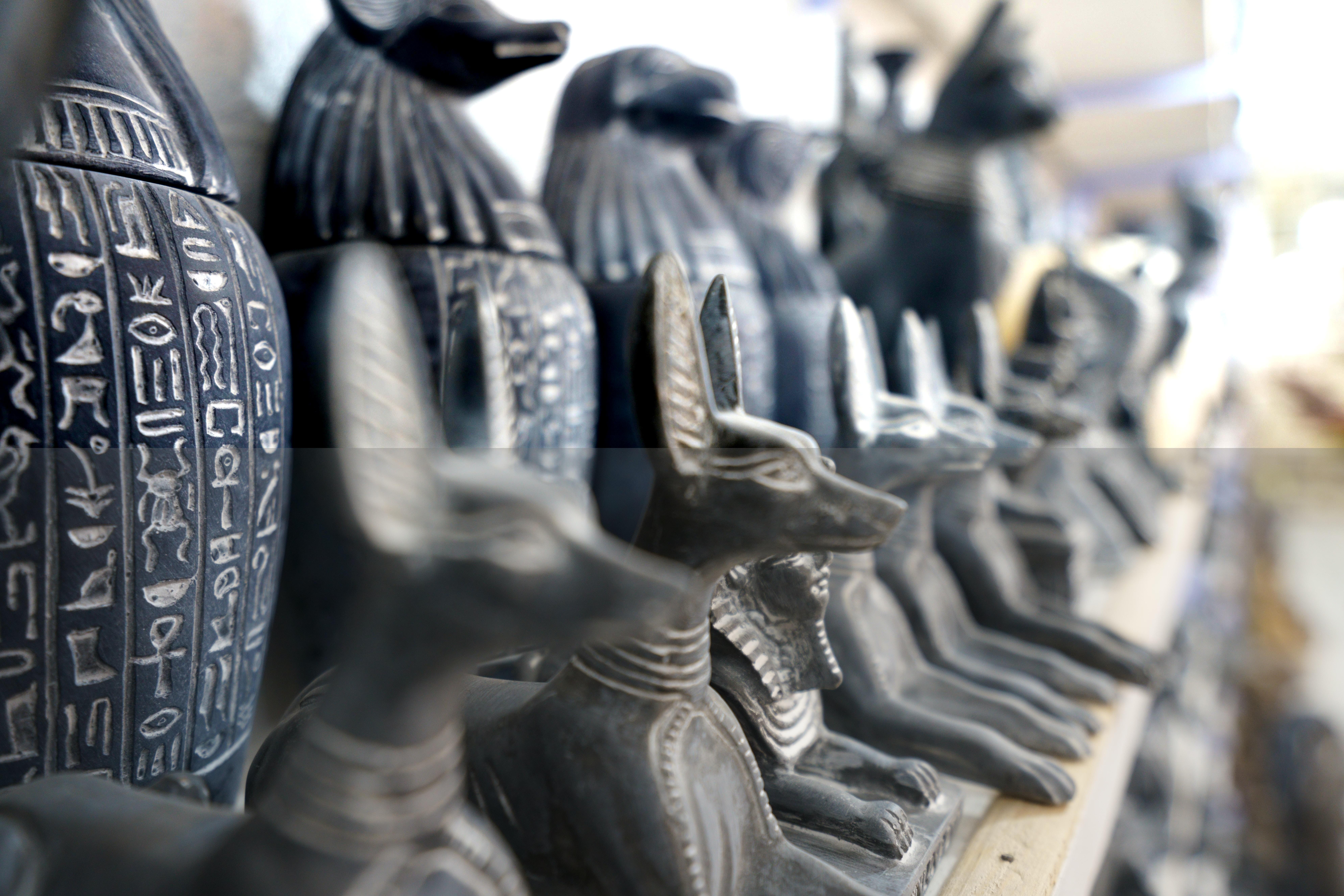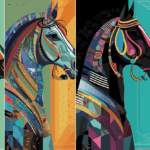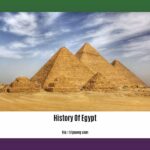Are you ready to embark on an extraordinary journey through time, deep into the heart of ancient Egypt? Brace yourself as we unravel the enigmatic world of popular Egyptian myths, those captivating tales that have captivated generations for centuries. In this article, we’ll dive into the cultural significance and enduring allure of these ancient legends that continue to enchant and fascinate us today. So, join me as we decode the secrets and unravel the mysteries that lie within the realm of popular Egyptian myths.
Popular Egyptian Myths
Egyptian myths have fascinated people for centuries, captivating our imaginations and offering a glimpse into the ancient world. These stories not only provided entertainment for the ancient Egyptians but also served as a way to understand the world around them and the gods they worshiped. Let’s dive into the enduring allure of popular Egyptian myths, and explore their cultural significance.
The Creation Myth of Ra
One of the most prominent Egyptian myths is the creation myth of Ra. Ra, the sun god, is believed to have created all living beings by giving them names. In this myth, Ra transforms himself into a man and becomes the first Pharaoh of Egypt. This captivating story not only explains the origins of life but also highlights the significance of the pharaohs in Egyptian society.
“The creation myth of Ra unveils the birth of life and the divine origin of the pharaohs, offering a symbolic glimpse into the rich tapestry of Egyptian culture.”
The Myth of Osiris and Isis
Another popular myth that resonates deeply with Egyptian culture is the myth of Osiris and Isis. Osiris, an important god in ancient Egypt, becomes Egypt’s sole ruler, but his brother Set murders him out of jealousy. However, his wife Isis, the goddess of magic, brings Osiris back to life, and their son Horus avenges his father by challenging Set for the throne. This myth showcases themes of life, death, resurrection, and the eternal struggle between good and evil.
“The captivating myth of Osiris and Isis delves into the complexities of life, death, and rebirth, offering profound insights into the Egyptian understanding of the cycle of existence.”
The Myth of Anubis and the Weighing of the Heart
The myth of Anubis and the Weighing of the Heart explores the afterlife, a concept deeply ingrained in Egyptian mythology. According to this myth, when a person dies, their heart is weighed by the god Anubis against the feather of Ma’at, the goddess of truth and justice. If their heart is lighter than the feather, they are granted eternal life. However, if their heart is heavy with sin, it is devoured by a monstrous creature. This myth emphasizes the importance of leading a just and virtuous life.
“The myth of Anubis and the Weighing of the Heart highlights the significance of morality and righteousness, providing a timeless moral compass for Egyptian society.”
Egyptian Mythology’s Influence on Culture
Egyptian myths and folktales not only entertained the ancient Egyptians but also influenced their culture in profound ways. These stories provided symbolic perspectives on the gods, the world, and the afterlife. The myths were frequently depicted in Egyptian writings and art, including short stories and religious material. Egyptian mythology played a crucial role in shaping the beliefs, values, and rituals of ancient Egyptian society.
“Egyptian myths were the cultural pillars that connected the ancient Egyptians to their gods, offering deep insights into their religious practices and societal norms.”
In conclusion, the enduring allure of popular Egyptian myths lies in their ability to captivate readers with their rich narratives and enduring symbolism. These myths, such as the creation myth of Ra, the myth of Osiris and Isis, and the myth of Anubis and the Weighing of the Heart, provide valuable insights into the cultural significance and intricate belief system of ancient Egypt. Through their profound storytelling, Egyptian myths continue to inspire and fascinate people worldwide.
In ancient Egypt, myths were woven into the fabric of daily life, captivating the imaginations of both young and old. From tales of gods and goddesses to epic stories of pharaohs and mystical creatures, the world of Egyptian mythology is as vast as the dazzling sands of the Sahara. If you’re a fan of these enthralling legends, you won’t want to miss out on exploring some of the most famous Egyptian myths. Click here to embark on a journey through ancient times and uncover the secrets that lie within the stories of the pharaohs and deities. Hurry, the wonders of Egyptian mythology await you! Famous Egyptian myths
In ancient Egyptian mythology, the gods played a significant role in the lives of the people. These gods were seen as powerful beings who had the ability to control various aspects of the world. One of the most prominent figures in Egyptian mythology is Ra, the Sun God.
[youtube v=”uZe49S1Q8b8″]
According to the creation myth, in the beginning, the universe was nothing more than a chaotic ocean. Out of this chaos emerged Benben, a huge pyramid-like mound. On top of this mound was a lotus flower, and when it blossomed, Ra, the God of the Sun, was brought into existence, bringing light with him.
Ra, on his own, generated the first generations of gods. Shu, the God of the air, and Tefnut, the Goddess of rain, were born. The universe was engulfed by a vast mass of primordial waters, and Shu and Tefnut plunged into the waters to explore its immensity.
Feeling afflicted after realizing that their children were taking a long time to return, Ra sent his best messenger to find them. Shu and Tefnut eventually returned safe and sound, and Ra’s joy was so immense that human beings were born from his tears.
After some time, Shu and Tefnut, their children, generated Geb, the God of the earth, and Nut, the Goddess of the sky. With their existence, the sky and the earth were created. Ra, being the Great God, ruled the universe with power and was awarded the title of the first Pharaoh.
One of Ra’s significant contributions was the creation of the Nile River, which gifted Egypt with a prosperous civilization. However, Ra had a premonition that his grandchildren would bring an end to his reign. He forbade the sky and the earth from having any offspring, but Nut and Geb disobeyed and gave rise to powerful gods – Isis, Nephthys, Seth, and Osiris.
Seth, Osiris’ ambitious brother, was eager to take all the power for himself. He deposed Ra and started to reign over the world. Osiris, after being murdered by Seth, became the new God of the universe. He brought civilization to men and taught them agriculture, weaving, and how to make bread. He also decreed the use of laws to bring order to chaos. Egypt flourished under his benevolent rule.
However, Osiris’ reign was not safe as Seth was determined to take the throne. Osiris’ affair with Nephthys, Seth’s wife, enraged him, and he sought revenge. Seth invited Osiris to a feast and tricked him into getting into a beautiful coffin, which he then closed, trapping Osiris inside. Seth threw the coffin into the Nile, drowning Osiris.
Isis, Osiris’ wife and sister, wept deeply after losing her beloved husband. Her tears poured into the Nile, giving rise to its traditional floods. Isis and her sister, Nephthys, searched for Osiris’ body, but Seth discovered it and tore it into 42 pieces, scattering them throughout Egypt.
Isis, with the help of Anubis, the God of the dead, managed to recover the pieces of Osiris’ body and mummified him using her divine powers. Through her magic, Isis was able to resurrect Osiris, but he could only reign over the world of the dead.
Osiris and Isis had a son named Horus, who swore to defeat Seth and reclaim his rightful throne. The contention between Horus and Seth was judged by the gods, and after a series of clashes, Horus emerged victorious. Seth was humiliated and Horus was granted the throne.
Thus, Horus became the supreme ruler of Egypt, and all the Pharaohs who followed were considered his descendants. Ra, the Sun God, continued to be worshipped throughout Egypt, and his name was even merged with the greatest figure of other Pantheons, such as Amun-Ra.
In addition to Ra and Horus, other prominent gods in Egyptian mythology include Anubis and Bastet. Anubis, often depicted with a jackal head, is the god associated with life after death. He is responsible for leading the souls of the dead to the underworld and presiding over their judgment.
Bastet, on the other hand, is the cat goddess and is associated with the Sun. She protected the world against the serpent Apophis and was deeply revered by the Egyptians. Cats were considered sacred animals and were even mummified in special cemeteries dedicated to them.
Egyptian mythology is rich with stories and legends that seek to explain the origins of life and the role of the gods in the Egyptian world. These myths served as a way for the ancient Egyptians to make sense of the world around them and the forces they believed controlled it.
FAQ
Question 1
What are some of the most famous Egyptian myths?
Answer 1
Some of the most famous Egyptian myths include the creation myth of Ra, the myth of Osiris and Isis, the myth of Horus and Set, and the myth of Anubis and the Weighing of the Heart.
Question 2
What are some other popular myths and folktales of ancient Egypt?
Answer 2
Aside from the well-known myths mentioned earlier, other popular myths and folktales of ancient Egypt include the Story of Re and the Great Queen Hatshepsut.
Question 3
What is Egyptian mythology?
Answer 3
Egyptian mythology refers to the collection of myths from ancient Egypt that describe the actions of the Egyptian gods and are an important part of their religion.
Question 4
How are Egyptian myths depicted in art and writings?
Answer 4
Egyptian myths are frequently depicted in Egyptian writings and art, particularly in short stories and religious materials.
Question 5
Which gods are featured prominently in Egyptian myths?
Answer 5
Prominent gods featured in Egyptian myths include Ra, Osiris, Isis, Horus, Set, and Anubis.
- China II Review: Delicious Food & Speedy Service - April 17, 2025
- Understand Virginia’s Flag: History & Debate - April 17, 2025
- Explore Long Island’s Map: Unique Regions & Insights - April 17, 2025
















